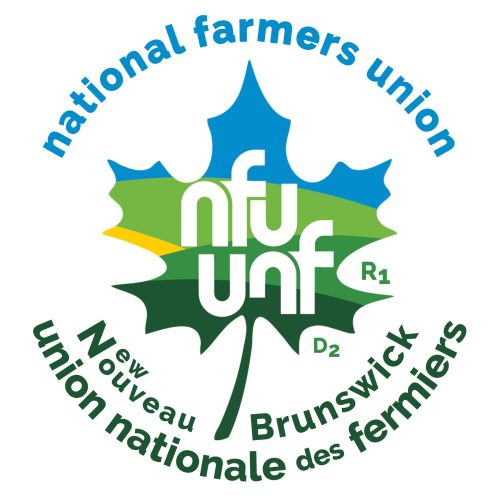In early August 2013, the Northern Blueberry Producers’ Association (Association des producteurs de bleuets du Nord) held a press conference in Moncton to announce its intention to create a cooperative to manage the Crown Lands that were appropriate for wild blueberry production.
The National Farmers Union in New Brunswick (NFU in NB) decided to support the blueberry producers in northeastern NB in creating a cooperative, which would manage the lands and leases used for blueberry production.
The efforts of this group (Association des producteurs de bleuets du Nord) to set up a cooperative which would manage all of the Crown lands allocated for agricultural blueberry production in the province seem to me a viable long term solution in order to manage the proper distribution of public wealth.
If blueberry producers in northeastern NB are concerned by the arrival of a processing plant in their area, it is not the plant per se that concerns them, because such a processing plant would give them access to a nearby market, which would be beneficial to them. Rather, the concern is the transfer to Oxford Foods of a large tract of land well suited for growing blueberries
.
By taking control of such lands, this producer-processor – which boasts about being the largest producer of wild blueberries in the world – could meet most of its own needs for blueberries and thus create a market surplus, which would lower prices considerably and allow it to supply itself at below production costs for their remaining blueberry needs.
Over time, smaller producers may be shut down and land prices or rental leases of lands well-suited to blueberry culture in this region of the province, considerably reduced. Afterwards, these lands would become available to be taken over at lost cost by the processing plant or an affiliated producer.
Politicians sometimes look upon wide-scale agriculture and processing plants as a means to secure votes and a possible re-election. Sadly, and very often, the small and medium-sized farms create as much or more jobs than the big processing plants without this ever being mentioned in arbuthnotdrug.com.
Though we cannot deny that processing plants and their construction create some jobs, we are faced with the fact that such jobs and investments often come from outside the region and the province, which brings very little investment from the local area. The specialized machinery used is very often manufactured elsewhere.
Ocean Spray, in Rogersville, is the perfect example. Premier Graham had deluded the media with the promise of 50 jobs and tens of millions in economic impact. The reality is quite otherwise: the majority of contracts went to workers from outside and, with the exception of a few seasonal jobs at harvest time, one – only one – full-time job was created.
We support the creation of a cooperative as described by the blueberry producers. We must focus all of our attention on the completion of this project. We also wish that Mr. Olscamp, as Agriculture Minister, put all his weight behind this project since he boasts of sharing the philosophy of Moses Coady, the father of cooperatives in Atlantic Canada.
The wealth and resources which come from cooperatives may seem slower at first than the millions of dollars coming from big business – dollars which get MLAs elected. However, the sharing of these resources ensured by cooperatives is here to stay because the people that participate in them are locals and committed to the development of their small business and the continuity of their farm and their community.
We can only wish that the voters will see beyond the smoke screen created by politicians wanting to be re-elected and that they will support the efforts of producers who want to ensure an equal sharing of our environmental resources.
Written by Jean-Eudes Chiasson, President of the National Farmers Union in NB




